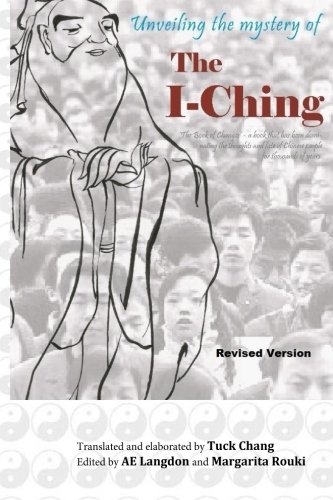

It includes the appendix on how to consult the oracle using the yarrow stalk or three coin methods.
I CHING BOOK OF CHANGES PDF PDF
Why not venture a dialogue with an ancient book that purports to be animated?Īn electronic version of the text of the hexagrams can be found online at I Ching Wilhelm Baynes Translation where it can be viewed as an html webpage or pdf file and the pdf file can be downloaded for offline use on a mobile phone, eBook reader or a computer. an indicator of the essential situation prevailing in the moment of its origin. the hexagram is the exponent of the moment in which it is cast. Thus it happens that when one throws the coins, or counts through the yarrow stalks, these chance details enter into the picture of the moment of observation and form a part of it. the Chinese picture of the moment encompasses everything down to the minutest nonsensical detail. If we leave things to nature, we see a very different picture: every process is partially or totally interfered with by chance, so much so that under natural circumstances a course of events absolutely conforming to specific laws is almost an exception. We have not sufficiently taken into account. what we term natural laws are merely statistical truths and thus must necessarily allow for exceptions.

The axioms of causality are being shaken to their foundations. Our science is based upon the principles of causality. In the foreword CG Jung pays tribute to the memory of his late friend, Richard Wilhelm, and he offers some thoughts: The Wilhelm/Baynes translation of the I Ching is available as a printed book by the Bollingen Foundation published by Princeton University Press that also includes additional materials discussing the history, the Trigrams, the underlying principles, and Commentaries. An electronic version of the text related to the hexagrams (the oracle), from the first part of the translation, can be viewed online or downloaded using the link below. The book includes a foreword by CG Jung, psychiatrist and psychoanalyst, who has elsewhere described using the I Ching in his psychiatric practice from time to time. Baynes (1950) has become a well respected classic. While there are many translations, the German translation by Richard Wilhelm rendered into English by Cary F. The I Ching, or Book Of Changes, is an ancient Chinese book.


 0 kommentar(er)
0 kommentar(er)
